
What Is the Hardest Education Board in the World? A Detailed Comparison
Education Board Difficulty Calculator
How to Use This Tool
Select the criteria that matter most to you, and we'll recommend the most suitable education board based on your preferences.
What's most important to you?
Your Recommendation
Difficulty ratings based on article criteria (1-10)
Choosing the right board affects your workload, stress level, and academic opportunities. A board that matches your strengths will help you perform better and reduce burnout.
When students hear the phrase hardest board, a flood of opinions rushes in-some swear by the rigor of the International Baccalaureate, others claim the Indian CBSE pushes limits. To cut through the noise, we’ll break down what makes a board “hard,” compare the major global boards, and give you clear guidelines on how to tackle any of them.
How to Measure Board Difficulty
Before naming the toughest board, we need a clear yardstick. Here are the four criteria most education experts use:
- Curriculum Breadth: Number of subjects and depth of content covered.
- Assessment Style: Weight of final exams vs. continuous assessment, and the level of analytical thinking required.
- Grading Standards: How strict the marking scheme is and the average pass rate.
- Student Load: Homework hours, project work, and extracurricular demands.
These metrics let us compare boards on a level playing field.
Meet the Major Global Boards
Below is a snapshot of the most widely recognized boards, each with its own reputation for rigor.
CBSE is the Central Board of Secondary Education in India, known for a uniform syllabus and emphasis on science and mathematics. ICSE stands for the Indian Certificate of Secondary Education, offering a broader humanities focus and more detailed language requirements. International Baccalaureate (IB) is a Swiss‑origin program that demands extended essays, Theory of Knowledge, and a balanced six‑subject workload. Cambridge Assessment International Education provides IGCSE and A‑Level pathways, celebrated for its analytical exam style. A‑Levels are the United Kingdom’s pre‑university qualification, focusing on depth in three to four subjects. Indian School Certificate (ISC) is the senior secondary counterpart to ICSE, maintaining a rigorous humanities and science mix. Advanced Placement (AP) offers US‑style college‑level courses taken in high school, graded on a 1‑5 scale.Side‑by‑Side Comparison
| Board | Country/Region | Curriculum Breadth | Assessment Style | Average Pass Rate | Difficulty Rating (1‑10) |
|---|---|---|---|---|---|
| CBSE | India | Core subjects (Science, Math, Humanities) | Final exams + periodic tests | ≈ 85% | 7 |
| ICSE | India | Broader language & arts component | Final exams + project work | ≈ 78% | 8 |
| IB | International | Six subjects + core (TOK, EE, CAS) | Internal assessments + 3‑hour exams | ≈ 73% | 9 |
| Cambridge (IGCSE/A‑Level) | UK/International | Subject‑specific depth | Paper‑based exams, some coursework | ≈ 80% | 8 |
| A‑Levels | UK | 3‑4 deep subjects | Two‑hour exams per subject | ≈ 85% | 7 |
| ISC | India | Similar to ICSE but senior level | Final exams + labs | ≈ 76% | 8 |
| AP | USA | College‑level subjects, optional | Standardized exams, 2‑3 hours | ≈ 70% | 8 |
Why Many Label IB the Hardest
The International Baccalaureate consistently scores the highest on our difficulty rating. Its three‑core requirements-Theory of Knowledge (TOK), the Extended Essay (EE), and Creativity, Activity, Service (CAS)-add a non‑academic workload that most other boards simply don’t have. Students must research a 4,000‑word essay, defend a philosophical argument in TOK, and log hours of service-all while maintaining high scores in six rigorous subjects.
Statistically, the IB’s global average pass rate hovers around 73%, lower than most national boards. This reflects both the demanding grading standards and the fact that the exam rewards depth over breadth, meaning a single slip can cost several points.
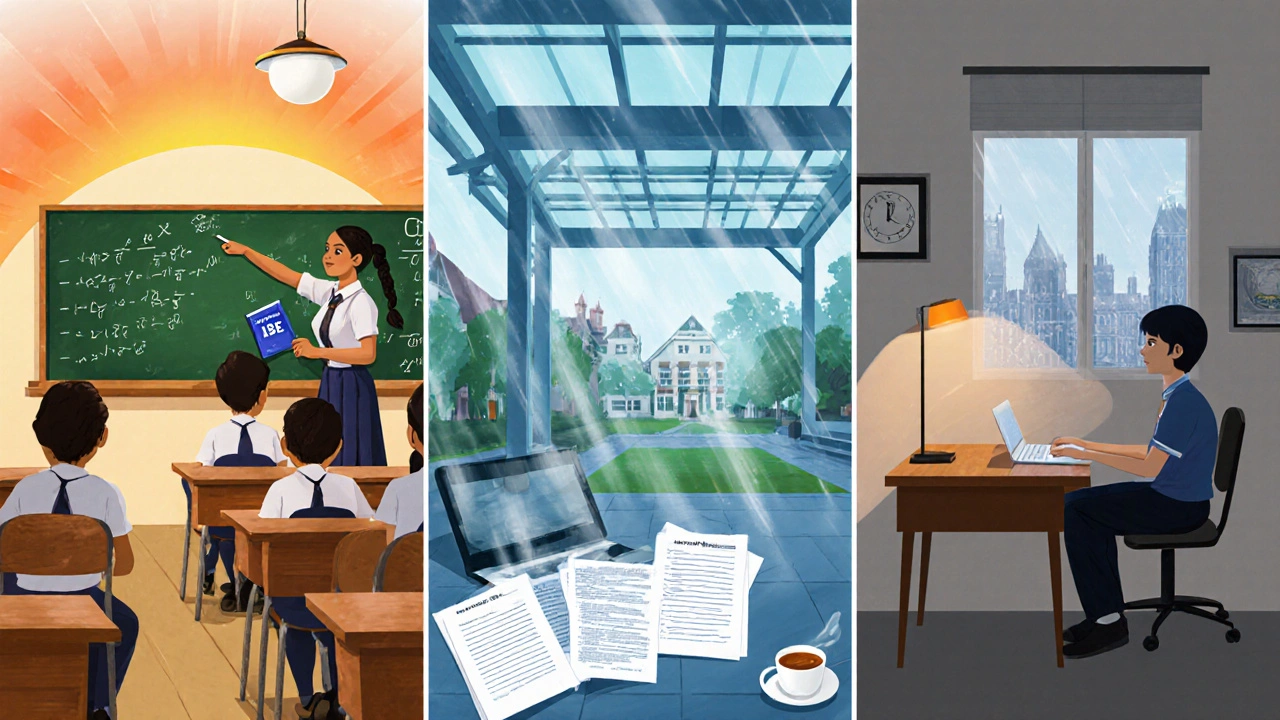
CBSE: Tough, but Different
CBSE’s reputation for difficulty stems from its massive student base-over 20 million candidates annually-making it a high‑stakes exam by sheer volume. The board’s focus on STEM subjects, combined with a 10‑mark objective and 90‑mark subjective split, forces students to master both quick problem‑solving and detailed analytical writing.
Recent years have seen CBSE introduce application‑based questions, raising the cognitive load. However, compared to IB’s holistic assessment, CBSE remains more content‑driven, which some students find more predictable.
ICSE and ISC: The Balanced Challenger
ICSE (and its senior counterpart ISC) are often described as the most balanced Indian boards. They demand strong language skills, a deeper dive into humanities, and precise lab work for science subjects. The 100‑mark exam split (20% internal, 80% final) means a student can’t rely solely on rote memorization.
Many educators rate ICSE/ISC at 8/10 difficulty because the board penalizes weak writing and analytical ability more than CBSE does.
Cambridge and A‑Levels: Specialised Rigor
Cambridge’s IGCSE and A‑Level pathways let students specialize early. While the breadth is lower, the depth is intense. A‑Level essays often require original argumentation, and the grading scheme is strict-typically a 70% threshold for an ‘A’ grade.
Because students only sit for three or four subjects, the workload feels manageable, but the expectation for mastery in each subject pushes difficulty ratings up to 8.
AP Courses: College‑Level Pressure in High School
Advanced Placement courses are optional but carry college‑credit weight. A score of 5 (the highest) is often needed for credit, implying a top‑20% performance. The exams blend multiple‑choice with free‑response, demanding both speed and depth.
Since students can choose how many APs to take, the board’s overall difficulty varies, but for those who stack five or more APs, the cumulative pressure can rival any international board.
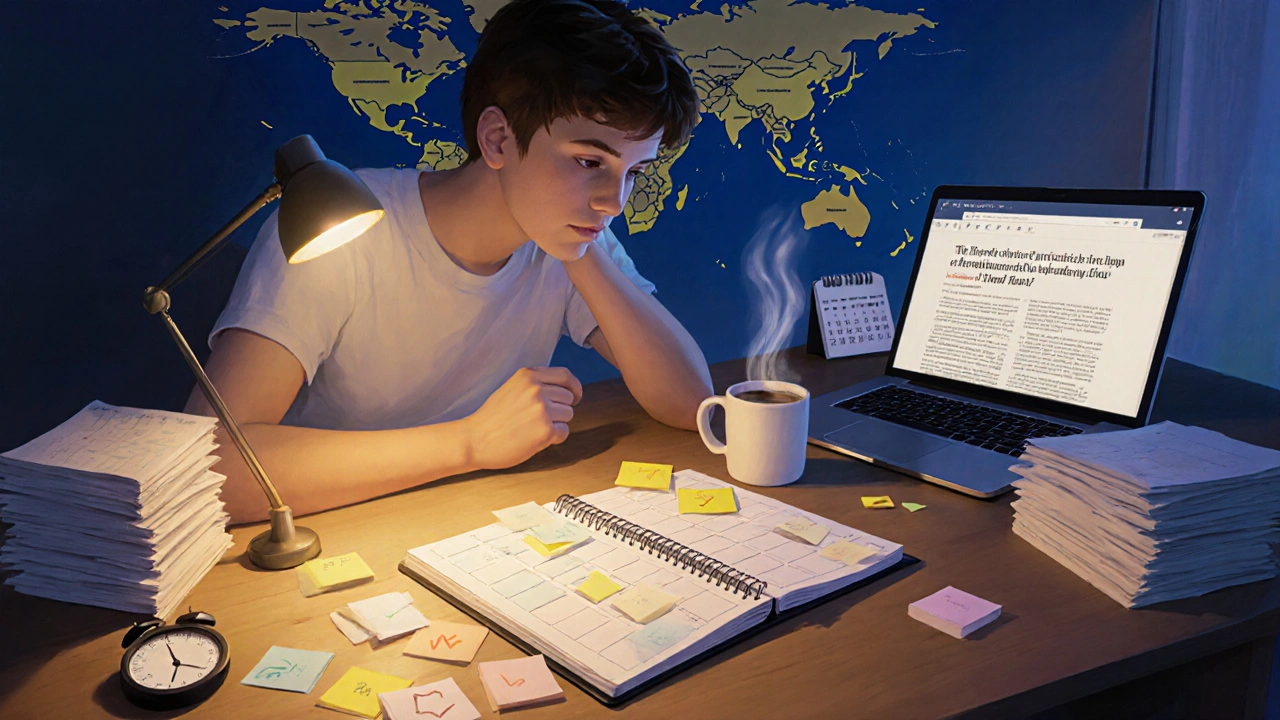
Preparing for the Toughest Board
- Identify the assessment style: If the board leans heavily on essays (IB, A‑Levels), sharpen writing and argument skills.
- Build a study schedule: For exam‑heavy boards (CBSE, ICSE), allocate consistent revision weeks leading up to the finals.
- Practice past papers: Every board releases sample papers; timed practice simulates exam pressure.
- Seek feedback early: Draft essays (EE, AP free‑response) and get teacher critique well before the deadline.
- Balance workload: For boards with core projects (IB’s CAS, extended essays), schedule non‑academic activities to avoid burnout.
Common Misconceptions
Many students assume that a board with higher average marks is easier. In reality, grading curves differ; a 75% in IB may be more impressive than an 85% in CBSE because of stricter standards.
Another myth is that “international boards are always harder.” While IB and Cambridge demand critical thinking, boards like AP are optional and can be taken selectively, making the perceived difficulty highly personal.
Quick Checklist: Is This Board Right for You?
- Do you thrive on sustained research projects? → Consider IB or ISC.
- Do you prefer a single‑subject deep dive? → A‑Levels or Cambridge A‑Level fits.
- Are you comfortable with high‑stakes final exams? → CBSE or ICSE.
- Do you want college credit in the US? → AP courses are the shortcut.
- Is a balanced curriculum across arts and sciences important? → ICSE/ISC.
Frequently Asked Questions
Which board has the lowest pass rate?
International Baccalaureate (IB) typically records the lowest global pass rate, around 73%, reflecting its stringent assessment standards.
Is CBSE harder than ICSE?
ICSE is generally considered more demanding because it emphasizes language skills and detailed coursework, while CBSE focuses more on core sciences.
Can a student take both IB and AP?
Yes, many international schools allow students to complement IB subjects with AP exams, but managing the workload requires careful planning.
How does the difficulty of A‑Levels compare to Cambridge IGCSE?
A‑Levels are more demanding because they focus on fewer subjects with deeper analytical expectations, whereas IGCSE covers a broader range with less intensive exams.
What strategies work best for the IB Extended Essay?
Start early, choose a topic you’re passionate about, set weekly milestones, and get continuous feedback from your supervisor to refine research and writing.
Whether you’re gearing up for a national board like CBSE or aiming for an international program like IB, understanding the criteria that make a board tough will help you prepare smarter. Choose the board that aligns with your strengths, plan your study routine, and remember that “hard” often means “rewarding” in the long run.



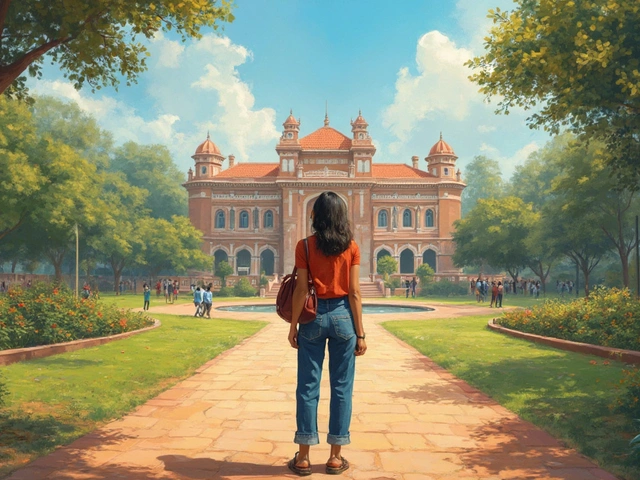
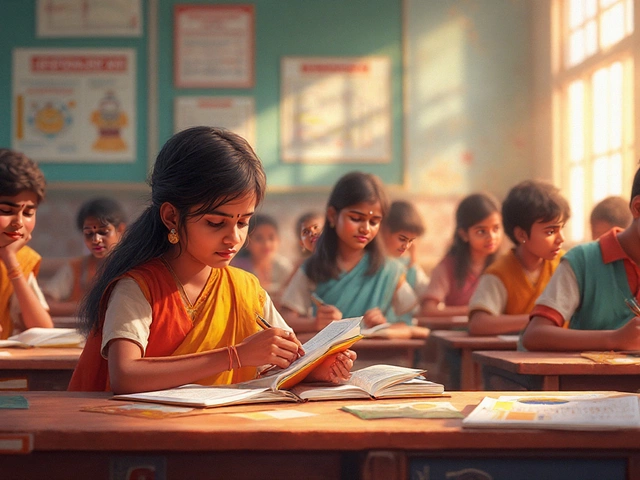
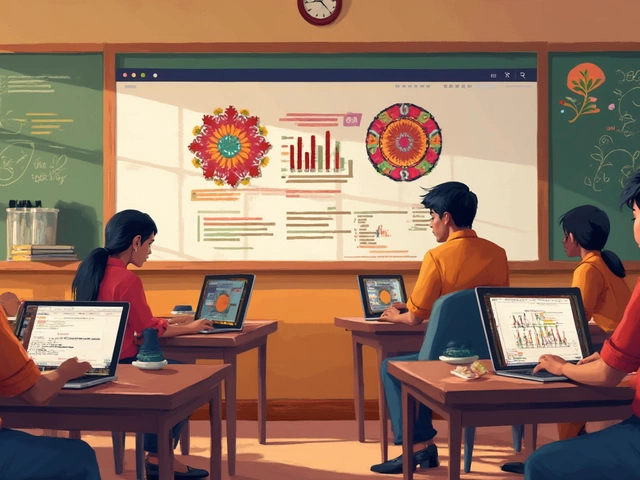
Write a comment